Laser Tattoo Removal in Tel Aviv
Search and Compare the Best Clinics and Doctors at the Lowest Prices for Laser Tattoo Removal in Tel Aviv

Find the best clinics for Laser Tattoo Removal in Tel Aviv
With Medijump you can browse 1 facilities offering Laser Tattoo Removal procedures in Tel Aviv. The cheapest price available is $245 in Ramat Gan
Laser Tattoo Removal in Israel
Price: $ 245
Laser Tattoo Removal in Ramat Gan
Price: $ 245
Laser Tattoo Removal in Tel Aviv
Price: $ 279
Vietnam offers the best prices Worldwide
Price: $ 3
From 24 verified reviews
Raymonde Amsalem, 02 February 2020
True courtesy and integrity! Uncompromising professionalism in maintaining a natural and flattering aesthetic appearance. Dr. Meir Cohen and his staff are simply outstanding! Highly recommend
Compare Before & After Photos of _procedure_photos.phpLaser Tattoo Removal


Front view
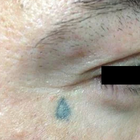
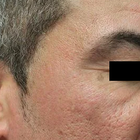
Half-side view
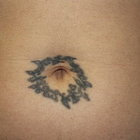
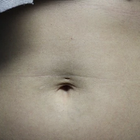
Front view

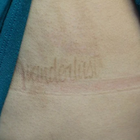
Front view
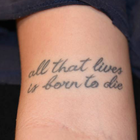
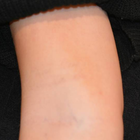
Front view
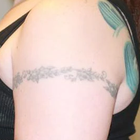
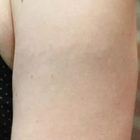
Full-side view
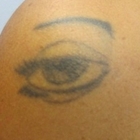
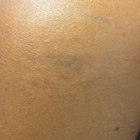
Front view
WHY US?
At Medijump, we're making medical easy. You can search, compare, discuss, and book your medical all in one place. We open the door to the best medical providers worldwide, saving you time and energy along the way, and it's all for FREE, no hidden fees, and no price markups guaranteed. So what are you waiting for?

Free

Best Price

Widest Selection

Risk-Free
What you need to know about Laser Tattoo Removal in Tel Aviv
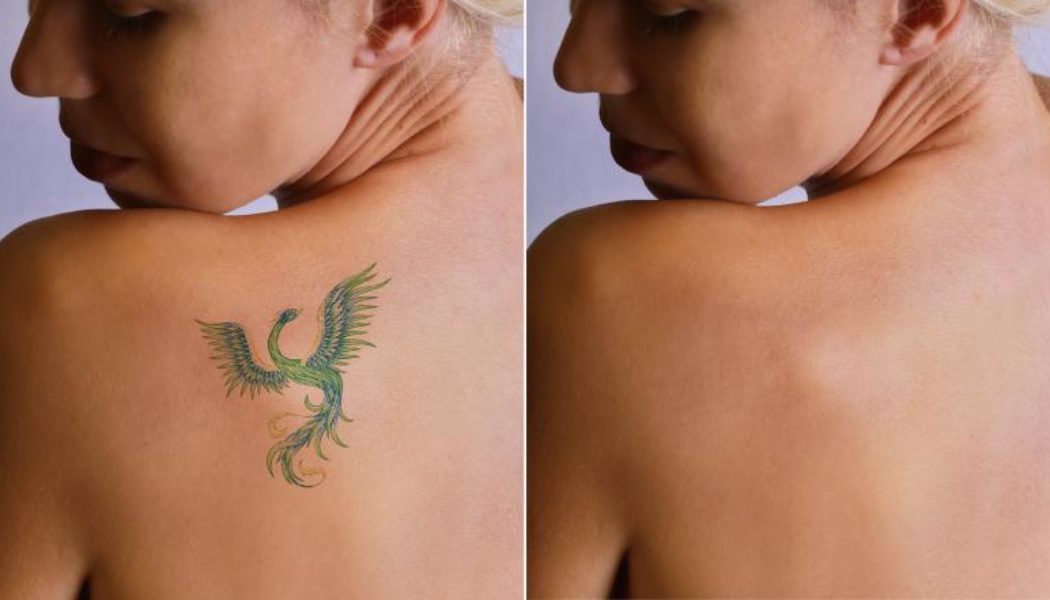
Laser tattoo removal is a technique to eliminate an unwanted tattoo with little to no side effects. It works by breaking up the pigment colors with a high-intensity light beam. You can undergo a laser tattoo removal if you regret having a tattoo, unhappy with the appearance of your tattoo, the tattoo causes infection, or you have an allergic reaction to the tattoo. Once you've done laser tattoo removal, your unwanted tattoo will be gone forever.
Grasping the notion that Laser Tattoo Removal is not a one-off activity, but instead encompasses an array of treatments distributed over multiple weeks, is crucial. Variables like the dimensions, hue, tattoo positioning, along with the person's general well-being determine the count of requisite sessions.
What is the cost of Laser Tattoo Removal in Tel Aviv?
In Tel Aviv, the Laser Tattoo Removal cost can greatly fluctuate. It hinges upon several considerations such as the size, emplacement, tattoo color, and the amount of needed therapy sessions. Other influencing factors are the laser technology utilized and the reputation of the clinic.
The majority of clinics in Tel Aviv extend payment schemes and financing aids to render the process more financially manageable. Bear in mind, though, that Laser Tattoo Removal isn't typically included in medical insurance coverage as it's deemed a beauty-related procedure. Irrespective of the expenditure, it is vital to give precedence to first-rate care and the proficiency of the healthcare staff over cost-effectiveness.
What does a Laser Tattoo Removal Procedure Involve?
The process of Laser Tattoo Removal entails directing particular wavelengths of laser light on the tattooed part of the skin. A highly specialized laser is chosen depending on the colors present in the tattoo for carrying out this technique. The light pulses penetrate the skin's topmost layers to reach the tattoo's pigment. This energy from the light leads to the fragmentation of the tattoo ink into minute particles, which are gradually flushed out by the body's immunity system.
Most people do not need anesthesia, but you can ask for a topical or local anesthetic from your doctor. During the procedure, you will have to wear protective eye shields. Then, your doctor or technician uses a laser to bring pulses of intense light to the top layers of your skin and only the tattoo pigment will absorb this light. Depending on the size, color(s), and age of your tattoo, you might need more than one treatment session.
How Long Should You Stay in Tel Aviv?
You can leave Tel Aviv after your tattoo removal procedure. However, it may take several treatments to completely remove the tattoo. Given that everyone reacts distinctively, the process might necessitate anywhere from 3 to 10 visits. The interval between each treatment is around 7 weeks to allow the treated area enough time to heal. You are free to retreat to your home, or a place of your choosing, in between these sessions. This sequence persists until your tattoo is completely removed. Nevertheless, it is critical to resume your journey to Tel Aviv for each forthcoming Laser Tattoo Removal.
What's the Recovery Time Like?
You will feel pain and discomfort for around a week, but your skin will completely heal in around six weeks. You should be able to go to work as long as you do not feel any pain or discomfort that interferes with your life.
Right after every session, you may observe minor swelling and a reddish tint on the manipulated area. These indications normally wane within a short span that can range from a few hours to two days and can be tamed with chilled packs and popularly accessible pain relievers. Evading exposure to sunlight and demanding activities in the initial few days is of utmost importance to forestall probative issues.
What sort of Aftercare is Required for Laser Tattoo Removal Procedures in Tel Aviv?
Your doctor will give you aftercare instructions; make sure to follow the instructions. Keep the treated area clean, do not soak the area, and try to avoid popping blisters. If the treated area itches, apply hydrocortisone cream. Avoid smoking as it can reduce the effectiveness of laser tattoo removal by around 70%.
The treated region should also be protected from the sun and covered with a high SPF sunscreen because the skin will be more susceptible to UV deterioration. Additionally, avoiding activities that could result in significant sweating or close contact with the area of the skin that is receiving treatment is advised. You must avoid the impulse to pick or scratch at the treated area if you want the skin to heal properly. Finally, maintaining effective healing and general health requires drinking plenty of water and eating a diet that is nutritionally balanced.
What's the Success Rate of Laser Tattoo Removal Procedures in Tel Aviv?
Laser tattoo removal is the most effective tattoo removal treatment with a success rate of over 95%. It's important to understand that when discussing tattoo removal, the term "effectiveness" typically refers to the degree of tattoo fading rather than complete tattoo removal. The depth, type, and concentration of the ink, the tattoo's colour, as well as the recipient's skin features and overall health, can all have an impact on the final design.
Are there Alternatives to Laser Tattoo Removal Procedures in Tel Aviv?
Laser Tattoo Removal has evolved into a highly effective strategy for eliminating tattoos, but you're afforded various other alternatives if Laser Tattoo Removal does not align with your requirements. Intense pulsed light (IPL) therapy, for instance, where light pulses are deployed to dissolve the tattoo ink, could be a viable proposition particularly for larger tattoos. However, for heavily inked or deeper tattoo locations, IPL might not yield the desired outcome.
Dermabrasion is yet another alternative. It's a process that employs skin 'sanding' to eliminate the surface and middle skin layers. Compared to laser treatments, dermabrasion can be less comfortable and requires a more prolonged healing duration. In certain instances, it might also be viable to surgically remove the tattoo with a scalpel, but be prepared for the potential of scarring. Therefore, when deciding on the best course of action, it's important to discuss your unique requirements and expectations with a specialist.
What Should You Expect Before and After the Procedure
Before the Laser Tattoo Removal, there will be a discussion with the expert regarding your health history, the treatment information, and your anticipated outcomes. The area on which the tattoo is located must be hygienic and devoid of any ongoing skin issues. A topical anesthesia may be applied during the session for your comfort. The feeling you might experience when the laser is used could be likened to the feeling of a rubber band being flicked against your skin.
Post-treatment, the tattooed section may look inflamed and red, and it could feel a bit warm to the touch and tender. These symptoms should diminish over a few days. It is vital that you adhere to the follow-up care guidelines given by the clinic to ensure the best healing process and outcome. Generally, this requires cleanliness of the area, avoiding direct sun, and abstaining from activities that can irritate the skin. Regular check-ups of your healing process with your expert can assist with timely detection and management of any potential post-treatment issues.
What are Potential Risks of Laser Tattoo Removal?
Laser Tattoo Removal carries some side effects and risks, such as:
- Infection
- Hypopigmentation and hyperpigmentation (treated skin becomes significantly darker or lighter than its surroundings)
- Scarring, bleeding, swelling, and blisters
It's important that you get proper treatment by a reputable doctor to avoid these side effects and risks.
Whilst the information presented here has been accurately sourced and verified by a medical professional for its accuracy, it is still advised to consult with your doctor before pursuing a medical treatment at one of the listed medical providers
No Time?
Tell us what you're looking for and we'll reachout to the top clinics all at once
Enquire Now

Popular Procedures in Tel Aviv
Prices Start From $28

Prices Start From $6,002

Prices Start From $278

Recommended Medical Centers in Tel Aviv for Laser Tattoo Removal

- Interpreter services
- Translation service
- Religious facilities
- Medical records transfer
- Medical travel insurance
- Health insurance coordination
- TV in the room
- Safe in the room
- Phone in the room
- Private rooms for patients available

- Interpreter services
- Translation service
- Religious facilities
- Medical records transfer
- Medical travel insurance
- Health insurance coordination
- TV in the room
- Safe in the room
- Phone in the room
- Private rooms for patients available

- Interpreter services
- Translation service
- Religious facilities
- Medical records transfer
- Medical travel insurance
- Health insurance coordination
- TV in the room
- Safe in the room
- Phone in the room
- Private rooms for patients available
Laser Tattoo Removal in and around Tel Aviv
About Tel Aviv
Tel Aviv-Yafo commonly referred to as just Tel Aviv, is the economic and technological center of Israel. Located on the Israeli Mediterranean coastline, the city is popular for its glimmering beaches, creative culture, non-stop nightlife, and architectural heritage. As Israel is becoming a popular medical tourism hub, thousands of medical tourists who seek medical treatments in this country choose Tel Aviv as their destination. The city’s medical system, as well as its doctors and medical professionals, are world-renowned. It boasts some of the finest medical centers, staffed with highly trained doctors and nurses. International tourists looking for world-class, innovative medical treatments can get any procedure they need for a fraction of the cost they would have to pay in their home countries.
Popular Parts of Tel Aviv
There’s no shortage of activities in Tel Aviv. With at least 300 days of sun per year, this hip and bustling city offer shimmering beaches for any sun-chaser. Gordon Beach is one of the most popular in the city. It boasts clear blue waters, volleyball courts, and a boardwalk full of restaurants serving fresh fish and Israeli cuisine. Besides the beaches, visitors usually go to the Tel Aviv Museum of Art. This impressive gallery is set inside the modern ‘envelope’ building by American architect Preston Scott Cohen. The museum provides a lot of activities and collections to see, but the highlight is the collection of Impressionist and post-Impressionist art, which features works by Pissarro, Renoir, Monet, Picasso, Van Gogh, and many more. Visitors who want to relax can visit Park HaYarkon, which is the city’s largest green space.
Transport in Tel Aviv
International tourists will arrive at Ben Gurion Airport, which is located 20 kilometers southeast of Tel Aviv. It serves flights to and from many cities around the world, including Seoul, Amsterdam, New York, and Beijing. The city’s relatively new overground railway system is the most affordable and easiest way to get around. Buses are available, but the routes can be a bit confusing. Taxis are widely available around the city and they are easy, albeit expensive, way to get around.
Visas in Tel Aviv
Holders of passports issued by 99 countries, including all EU countries, Canada, Russia, and the US can enter and stay in the country for up to 3 months without a visa. Most other nationals are required to obtain a visa prior to arrival and are recommended to contact their nearest embassy of Israel as some countries need a confirmation from the Israeli government before a tourist visa is issued.
Weather in Tel Aviv
Tel Aviv experience a typical Mediterranean climate. The winters are rainy and the summers are hot. The temperatures in the summer (June to August) can rise to 31°C - 34°C and the humidity can reach over 80%. Spring and fall have pleasant weather since the temperatures are not too high or low.
Additional Info
- Local Currency: New Israeli Shekel (ILS) is the official currency. 1 USD will get you approx. 3.5 ILS.
- Money & Payments: It’s easy to find ATMs around the city. Credit cards are widely accepted. Tipping is common, but typically not expected.
- Local Language: Hebrew is the official language, while Arabic has a special status as a semi-official language. Most people can speak English fairly well.
- Local Culture and Religion: Most of the population adheres to Judaism. Islam is the largest minority religion in the city, followed by Christianity.
- Public Holidays: The city celebrates several public holidays, such as Independence Day, Hanukkah, and Jerusalem Day.
Popular Searches
- Plastic Surgery in Thailand
- Dental Implants in Thailand
- Hair Transplant in Thailand
- Breast Augmentation Thailand
- Gastric Sleeve in Thailand
- Gender Reassignment Surgery in Thailand
- Laser Hair Removal in Bangkok
- Botox in Bangkok
- Dermatology in Bangkok
- Breast Augmentation in Bangkok
- Coolsculpting in Bangkok
- Veneers in Turkey
- Hair Transplant in Turkey
- Rhinoplasty in Turkey
- Stem Cell Therapy in Mexico
- Rhinoplasty in Mexico
- Liposuction in Mexico
- Coolsculpting in Tijuana
- Rhinoplasty in Korea
- Scar Removal in Korea
- Gastric Sleeve in Turkey
- Bone Marrow Transplant in India
- Invisalign in Malaysia
- Plastic Surgery in the Dominican Republic
- Tummy Tuck in the Dominican Republic
- Plastic and Cosmetic Surgery in Poland
- Rhinoplasty in Poland
- Hair Implant in Poland
- Dental Implants in Poland
- IVF in Turkey
